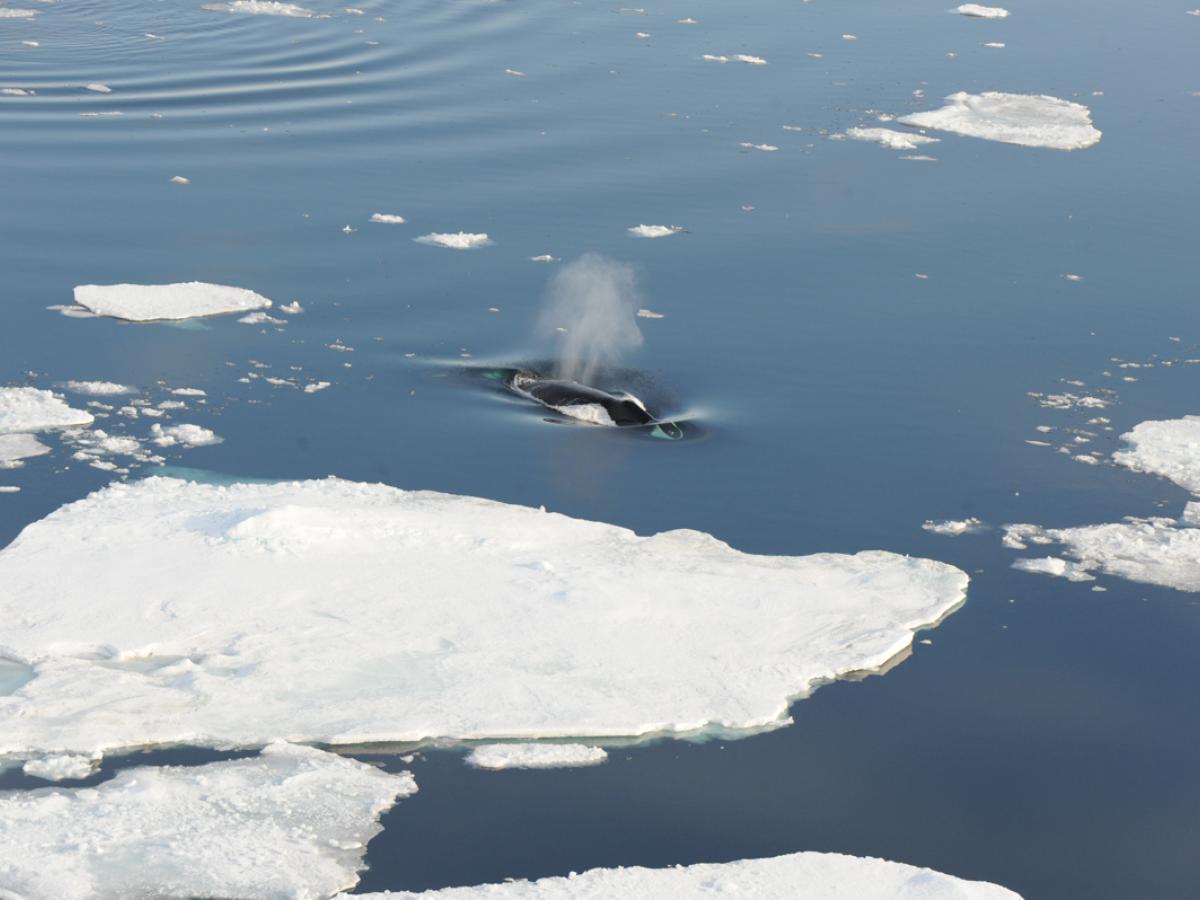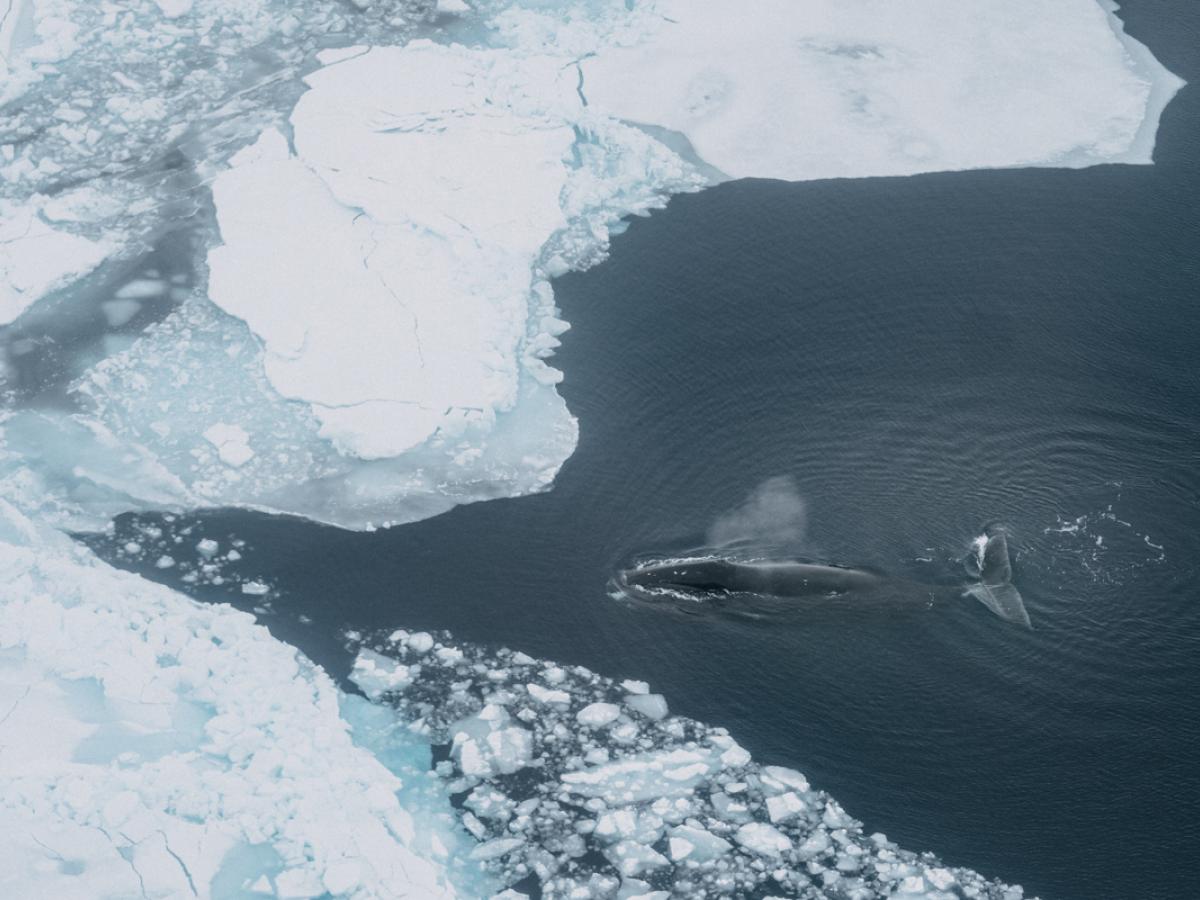New research examining 11,700 years of bowhead whale persistence throughout the Arctic projects that sea ice loss due to climate change will cause their habitat to severely contract by up to 75 per cent.

A bowhead whale swimming in Arctic waters. Credit: Kit Kovacs and Christian Lydersen, Norwegian Polar Institute.
An international team led by researchers from the University of Adelaide and the University of Copenhagen reconstructed an 11,700-year ecological baseline for bowhead whales, which are a threatened Arctic native species.
Using computer models, fossils, and whaling records, the team mapped the location and size of suitable summer foraging habitat for bowhead whales over the entire Holocene, finding that until recently it remained constant despite significant climatic fluctuations.
However, they predict that future climate change will erode somewhere between 65-75 per cent of this foraging habitat by the end of the 21st century. In the Sea of Okhotsk, which is home to one of only four populations of bowhead whales, viable summer habitat is likely to vanish entirely by 2060.
The reason for the decline is the collapse of a tight association between bowhead whales and summer sea ice cover.
"Bowhead whales have preferred to forage amongst sea ice for many millennia," said lead author Mr Nicholas Freymueller, from the University of Adelaide's Environment Institute and the University of Copenhagen's Globe Institute.
"However, Arctic sea ice has declined significantly in recent decades, and this is set to accelerate in coming decades, causing habitats where bowhead whales currently congregate in large numbers to be lost."

A bowhead whale swimming through Arctic sea ice in Disko Bay, Greenland. Credit: Anders Drud Jordan.
The team also found that the few patches of suitable bowhead habitat predicted to remain in the year 2100 will exist outside their current distribution, directly impacting conservation policies.
"By identifying the extent and location of bowhead whale habitat that is likely to be lost in coming decades, our projections provide vital information to guide future management efforts of this emblematic species," said Professor Eline Lorenzen, from the University of Copenhagen's Globe Institute.
Bowhead whales are still recovering from four centuries of commercial whaling. They are considered emblematic because the ongoing threats they face are reflective of those which all Arctic marine mammal species face due to climate change.
"By using ecological models and paleo-archives to reconstruct pre-whaling distributions of bowhead whales, we were able to develop a much stronger understanding of the habitat preferences of this species that was nearly hunted to extinction," said senior author Associate Professor Damien Fordham, from the University of Adelaide's Environment Institute.
"This gives us improved confidence in our projections of habitat loss."
The study, published in Ecology and Evolution, shows how past perspectives can strengthen predictions of species' future vulnerability to rapid ocean warming.






